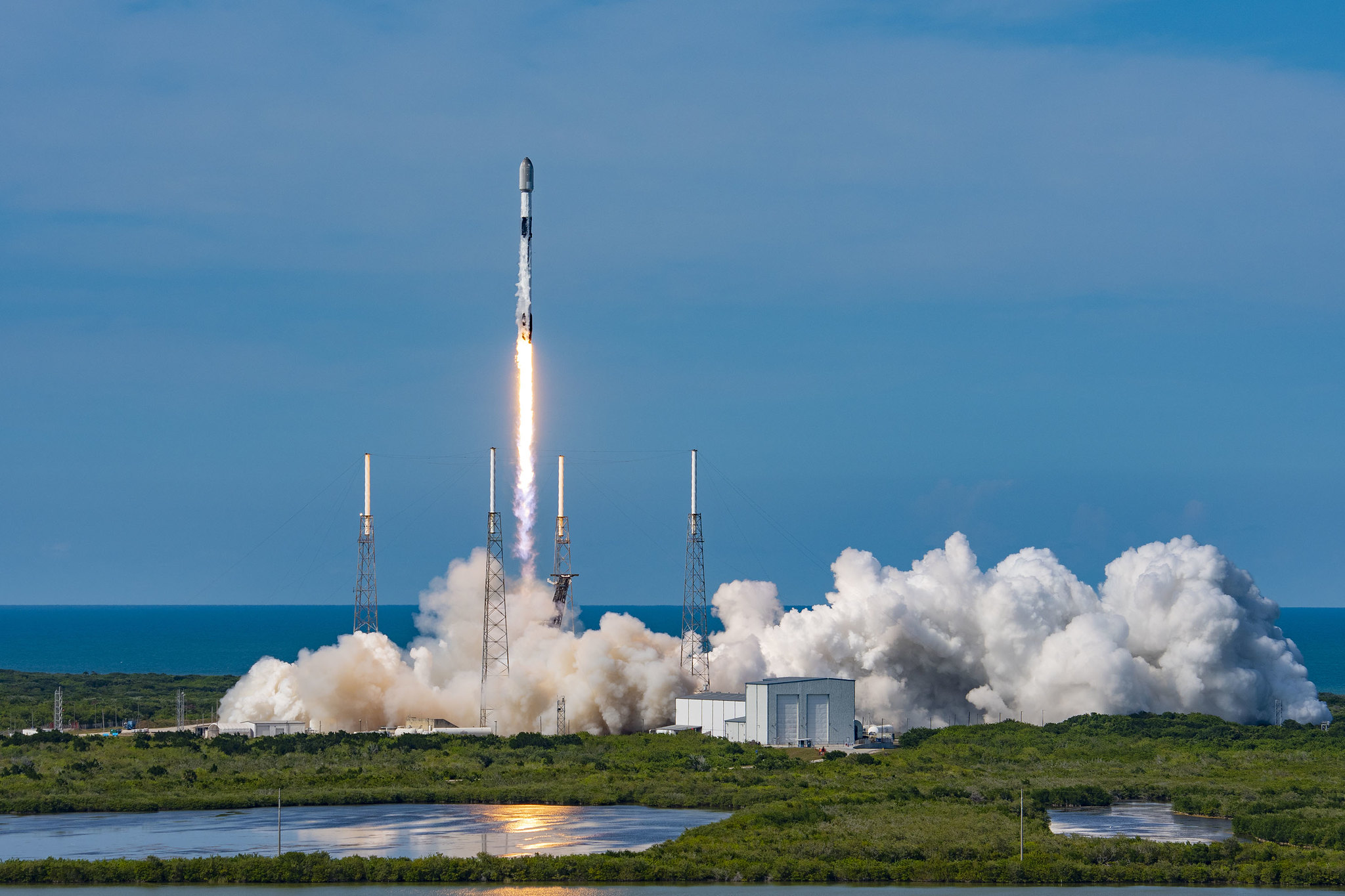Starlink service endangered by proposed 5G plan, SpaceX says

SpaceX is fighting against a possible regulatory change, saying it could cripple the company's Starlink satellite-internet business.
The potential change involves the 12 gigahertz (GHz) frequency band, which SpaceX's Starlink spacecraft and many other satellites use to beam data to the ground.
Early last year, the U.S. Federal Communications Commission (FCC) began thinking about opening the band up for extensive terrestrial use, as The Verge noted. Dish Network has thrown its hat into this ring, proposing to use the 12 GHz band for its new 5G network.
Related: SpaceX's Starlink megaconstellation launches in photos
SpaceX is not happy about this idea, saying that its implementation would harm Starlink and other current 12 GHz users, perhaps irrevocably.
"Essentially, the band would become unusable," David Goldman, senior director of satellite policy at SpaceX, said during a call with reporters on Tuesday (July 26). "It would potentially end services for customers in that band."
SpaceX studies have found that Starlink customers would get interference about 80% of the time if the 12 GHz band were opened up for 5G use, Gold said.
Breaking space news, the latest updates on rocket launches, skywatching events and more!
"There is no service that anybody would use where you're getting blocked, you're getting outages, 80% of the time," he said.
Dish and other groups have disputed such numbers, claiming that they're part of a "disinformation campaign" that SpaceX is waging against the 5G plan.
"This tactic, which is commonly used by Elon Musk, is not only disingenuous, but it promulgates an anti-5G narrative that is harmful to American consumers who deserve greater competition, connectivity options and innovation," the 5Gfor12GHz Coalition, which counts Dish as one of its 35 members, said in a statement earlier this month. "It also stands to threaten America's global leadership in the 5G and technology sector as other countries outpace the nation in delivering next-generation services."
SpaceX has been fighting against the proposed 12 GHz rule change along multiple fronts. It has submitted multiple documents to the FCC laying out the envisioned ramifications, for example. And the company recently emailed Starlink customers "to let them know what was going on and to let them know how they could weigh in with the FCC, if they wanted to," Goldman said.
To date, about 100,000 people have written to the FCC asking them not to allow the rule change, he added. (It's unclear how many of those are Starlink customers, of which there are more than 400,000 in the United States, according to SpaceX.)
SpaceX has launched more than 2,900 Starlink satellites to low Earth orbit so far, and the megaconstellation could still grow by leaps and bounds. The company already has approval to launch 12,000 Starlink spacecraft, and it has applied for permission to loft up to 30,000 more as well.
Starlink is an important part of SpaceX's ambitious long-term exploration plans. Musk, the company's founder and CEO, has said that revenue from Starlink will help fund the development of Starship, the next-generation transportation system that SpaceX thinks will allow humanity to settle Mars.
Mike Wall is the author of "Out There" (Grand Central Publishing, 2018; illustrated by Karl Tate), a book about the search for alien life. Follow him on Twitter @michaeldwall. Follow us on Twitter @Spacedotcom or on Facebook.

Michael Wall is a Senior Space Writer with Space.com and joined the team in 2010. He primarily covers exoplanets, spaceflight and military space, but has been known to dabble in the space art beat. His book about the search for alien life, "Out There," was published on Nov. 13, 2018. Before becoming a science writer, Michael worked as a herpetologist and wildlife biologist. He has a Ph.D. in evolutionary biology from the University of Sydney, Australia, a bachelor's degree from the University of Arizona, and a graduate certificate in science writing from the University of California, Santa Cruz. To find out what his latest project is, you can follow Michael on Twitter.
